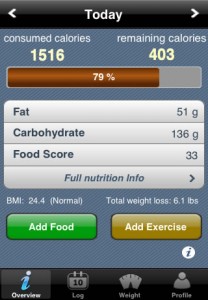 According to the FDA's mobile medical app draft regulatory guidelines, which it made public this morning, there are a handful of different types of health and medical apps that the agency specifically said would not be regulated under the proposed guidelines. Here are the descriptions of those apps that the FDA does not plan to regulate (for now):
According to the FDA's mobile medical app draft regulatory guidelines, which it made public this morning, there are a handful of different types of health and medical apps that the agency specifically said would not be regulated under the proposed guidelines. Here are the descriptions of those apps that the FDA does not plan to regulate (for now):
•Mobile apps that are electronic “copies” of medical textbooks, teaching aids or reference materials, or are solely used to provide clinicians with training or reinforce training previously received. These types of apps do not contain any patient-specific information, but could show examples for a specific medical specialty. Examples of such medical text books include the electronic Physician’s Desk Reference and similar reference materials that are typically used as part of course instruction and are implemented as electronic books. Exemplary teaching aids and reference materials include: flash cards or quizzes that are used for training purposes or as reference material (e.g., with preloaded medical images, conditions, pictures, graphs, etc.); slideshows of common conditions; lists of medical terminology; and review materials that are to be used by medical students during training. (In contrast, mobile apps that allow the user to input patient-specific information along with reference material to automatically diagnose a disease or condition are considered mobile medical apps).
•Mobile apps that are solely used to log, record, track, evaluate, or make decisions or suggestions related to developing or maintaining general health and wellness. Such decisions, suggestions, or recommendations are not intended for curing, treating, seeking treatment for mitigating, or diagnosing a specific disease, disorder, patient state, or any specific, identifiable health condition. Examples of these apps include dietary tracking logs, appointment reminders, dietary suggestions based on a calorie counter, posture suggestions, exercise suggestions, or similar decision tools that generally relate to a healthy lifestyle and wellness.
•Mobile apps that only automate general office operations with functionalities that include billing, inventory, appointments, or insurance transactions. Examples include: apps that determine billing codes like ICD-9 (international statistical classification of diseases); medical business accounting functions and aids that track and trend billable hours, procedures, and reminders for scheduled medical appointments or blood donation appointments; apps that automate functions such as collecting patient histories that replace paper-based entry; apps that enable insurance claims data collection and processing; and other apps that are similarly administrative in nature.
•Mobile apps that are generic aids that assist users but are not commercially marketed for a specific medical indication. Examples include apps that use the mobile platform as a magnifying glass (but not specifically for medical purposes), recording audio, note- taking, replaying audio with amplification, and other similar functionalities.
•Mobile apps that perform the functionality of an electronic health record system or personal health record system.

















